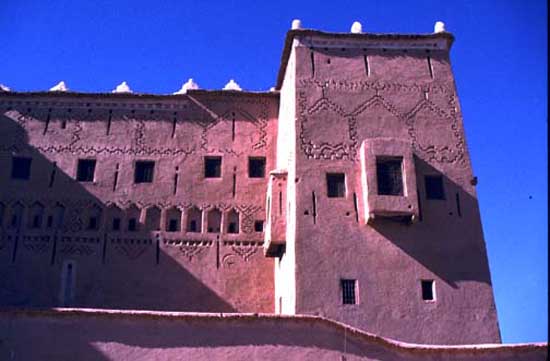2006.02.23: February 23, 2006: Headlines: COS - Morocco: Diversity: African American Issues: Personal Web Site: Morocco Peace Corps Volunteer Tia writes: I thought I knew what it was like to be a black person here in Morocco, but I learned that there is a real difference between may color and a darker black person
Peace Corps Online:
Directory:
Morocco:
Peace Corps Morocco :
The Peace Corps in Morocco:
2006.02.23: February 23, 2006: Headlines: COS - Morocco: Diversity: African American Issues: Personal Web Site: Morocco Peace Corps Volunteer Tia writes: I thought I knew what it was like to be a black person here in Morocco, but I learned that there is a real difference between may color and a darker black person
Morocco Peace Corps Volunteer Tia writes: I thought I knew what it was like to be a black person here in Morocco, but I learned that there is a real difference between may color and a darker black person

"Another volunteer who is very dark skinned came to visit me. I thought when she told me that she experienced racism here, that we had experienced the same. To me, we are the same color. We're in the same category. But when I saw the expression on people's faces when I introduced her, I was shocked. I have seen that look before. Its the look that a racist person gives you when they realize that you are their white son's black girlfriend. It is the look that racist people give you when they see your kinky african hair. It is the look racists give you when they think that you are trying to move outside the boundaries that they believe you should have. It was a look of disgust. It was a look that I have not received here in this country. And I realized that among some people here, there is a dislike of very black people. Here in Africa. It broke my heart."
Morocco Peace Corps Volunteer Tia writes: I thought I knew what it was like to be a black person here in Morocco, but I learned that there is a real difference between may color and a darker black person
Thursday, February 23, 2006
On the Subject of Color
Caption: Caption: Director Tschetter participates in Volunteer Tia Tucker's English class.
I learned something so interesting last weekend that made me think of Steve's entry. I know we all complain about the way we are treated sometimes in Morocco based on how we look. It varies from getting extra attention to getting totally ignored. I thought I knew what it was like to be a black person here in Morocco, but I learned that there is a real difference between may color and a darker black person.
Now, I have never been , nor have I considered myself light skinned. In America, my mom and I are both called Black even though she is a shade or two darker than me. In the south especially, even mixed children will most often be called black. i guess that comes from a history of trying to place people in groups so that it is easier to classify and segregate them. But I can think of two occasions in which I thought someone was white and it turned out they considered themselves black either because they had a black parent or grandparent. And I remember the opposite happening in Imitation of Life. (Which is fabulosa! I highly recommend that you see it.)
Anyway, I've mentioned before that in Morocco, people won't say I'm black. In fact, they laugh when I say I am. Go ahead and scroll up to the picture of the diversity league. Do you see 3 white girls in the picture. No, there is obviously one girl of the African persuasion. And that's me. Without a doubt. But here in Morocco, they call me Smrrra. This means tan or brown. I used to laugh when people would call me this or even when they would call me Luween which means colored, and is considered a compliment. I used to laugh and gently explain to people that there was nothing wrong with the color black and that in our country black is beautiful. I would tell people that in some parts of Africa black is considered a symbol of life, like the color of fertile soil, and white is the symbol of death- that all people's colors should be respected for God is the one that created them. But something happened last week that made me just plain mad!
Another volunteer who is very dark skinned came to visit me. I thought when she told me that she experienced racism here, that we had experienced the same. To me, we are the same color. We're in the same category. But when I saw the expression on people's faces when I introduced her, I was shocked. I have seen that look before. Its the look that a racist person gives you when they realize that you are their white son's black girlfriend. It is the look that racist people give you when they see your kinky african hair. It is the look racists give you when they think that you are trying to move outside the boundaries that they believe you should have. It was a look of disgust. It was a look that I have not received here in this country. And I realized that among some people here, there is a dislike of very black people. Here in Africa. It broke my heart.
-Tia
Links to Related Topics (Tags):
Headlines: February, 2006; COS - Morocco; Diversity; African American Issues
When this story was posted in November 2006, this was on the front page of PCOL:





Peace Corps Online The Independent News Forum serving Returned Peace Corps Volunteers
 | Ron Tschetter in Morocco and Jordan
On his first official trip since being confirmed as Peace Corps Director, Ron Tschetter (shown at left with PCV Tia Tucker) is on a ten day trip to Morocco and Jordan. Traveling with his wife (Both are RPCVs.), Tschetter met with volunteers in Morocco working in environment, youth development, health, and small business development. He began his trip to Jordan by meeting with His Majesty King Abdullah II and Her Majesty Queen Rania Al Abdullah and discussed expanding the program there in the near future. |
 | Chris Dodd's Vision for the Peace Corps
Senator Chris Dodd (RPCV Dominican Republic) spoke at the ceremony for this year's Shriver Award and elaborated on issues he raised at Ron Tschetter's hearings. Dodd plans to introduce legislation that may include: setting aside a portion of Peace Corps' budget as seed money for demonstration projects and third goal activities (after adjusting the annual budget upward to accommodate the added expense), more volunteer input into Peace Corps operations, removing medical, healthcare and tax impediments that discourage older volunteers, providing more transparency in the medical screening and appeals process, a more comprehensive health safety net for recently-returned volunteers, and authorizing volunteers to accept, under certain circumstances, private donations to support their development projects. He plans to circulate draft legislation for review to members of the Peace Corps community and welcomes RPCV comments. |
 | He served with honor
One year ago, Staff Sgt. Robert J. Paul (RPCV Kenya) carried on an ongoing dialog on this website on the military and the peace corps and his role as a member of a Civil Affairs Team in Iraq and Afghanistan. We have just received a report that Sargeant Paul has been killed by a car bomb in Kabul. Words cannot express our feeling of loss for this tremendous injury to the entire RPCV community. Most of us didn't know him personally but we knew him from his words. Our thoughts go out to his family and friends. He was one of ours and he served with honor. |
 | Peace Corps' Screening and Medical Clearance
The purpose of Peace Corps' screening and medical clearance process is to ensure safe accommodation for applicants and minimize undue risk exposure for volunteers to allow PCVS to complete their service without compromising their entry health status. To further these goals, PCOL has obtained a copy of the Peace Corps Screening Guidelines Manual through the Freedom of Information Act (FOIA) and has posted it in the "Peace Corps Library." Applicants and Medical Professionals (especially those who have already served as volunteers) are urged to review the guidelines and leave their comments and suggestions. Then read the story of one RPCV's journey through medical screening and his suggestions for changes to the process. |
 | The Peace Corps is "fashionable" again
The LA Times says that "the Peace Corps is booming again and "It's hard to know exactly what's behind the resurgence." PCOL Comment: Since the founding of the Peace Corps 45 years ago, Americans have answered Kennedy's call: "Ask not what your country can do for you--ask what you can do for your country. My fellow citizens of the world: ask not what America will do for you, but what together we can do for the freedom of man." Over 182,000 have served. Another 200,000 have applied and been unable to serve because of lack of Congressional funding. The Peace Corps has never gone out of fashion. It's Congress that hasn't been keeping pace. |
 | PCOL readership increases 100%
Monthly readership on "Peace Corps Online" has increased in the past twelve months to 350,000 visitors - over eleven thousand every day - a 100% increase since this time last year. Thanks again, RPCVs and Friends of the Peace Corps, for making PCOL your source of information for the Peace Corps community. And thanks for supporting the Peace Corps Library and History of the Peace Corps. Stay tuned, the best is yet to come. |
 | History of the Peace Corps
PCOL is proud to announce that Phase One of the "History of the Peace Corps" is now available online. This installment includes over 5,000 pages of primary source documents from the archives of the Peace Corps including every issue of "Peace Corps News," "Peace Corps Times," "Peace Corps Volunteer," "Action Update," and every annual report of the Peace Corps to Congress since 1961. "Ask Not" is an ongoing project. Read how you can help. |
Read the stories and leave your comments.

Some postings on Peace Corps Online are provided to the individual members of this group without permission of the copyright owner for the non-profit purposes of criticism, comment, education, scholarship, and research under the "Fair Use" provisions of U.S. Government copyright laws and they may not be distributed further without permission of the copyright owner. Peace Corps Online does not vouch for the accuracy of the content of the postings, which is the sole responsibility of the copyright holder.
Story Source: Personal Web Site
This story has been posted in the following forums: : Headlines; COS - Morocco; Diversity; African American Issues
PCOL35172
40


















